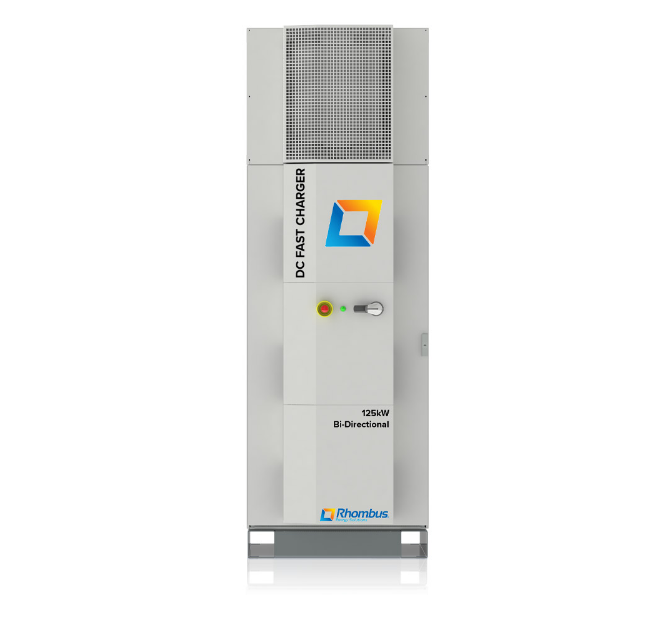From pv magazine Global
Synchroinverters are a special kind of smart inverter that mimics a synchronous generator and are able to avoid grid voltage frequency fluctuations and faults by responding dynamically and autonomously to changes in the grid by software means, and providing an inertial response in an extremely short time. These devices have been developed mostly at the research level to date and are considered an optimal solution for integrating renewable energy with distributed energy resources such as storage and electric vehicles.
Last week, the U.S. Department of Energy (DOE) and Israel’s Ministry of Energy (MoE) announced they have agreed to support, through the Binational Industrial Research and Development (BIRD) Energy program, a consortium formed by Israeli software provider Synvertec and U.S.-based power conversion and energy management systems provider Rhombus Energy Solutions to develop a new synchroinverter, which the DOE described as a dynamic and autonomous inverter utilising a unique control algorithm, allowing 100% of renewable generation by providing grid stability solutions for inverter-based applications.
“These new inverters are totally autonomous but can also respond to direct commands from the grid operator, when necessary,” a spokesperson from Rhombus Energy Solutions told pv magazine. “The solution is highly scalable, with the synchroinverter able to control inverters ranging in size from kilowatts to megawatts.”
According to the company, the devices are interoperable among themselves without compromising the expected performance of each of them separately and are able to provide grid stability services in less than 16.67 milliseconds. “The inverter will react to any changes in the grid in the same way a generator would; just much faster, in a cost-effective way, and [they] thereby play an active role in grid stability,” the spokesperson went on to say. “It is important to stress that the provision of frequency and voltage support is done simultaneously.”
The new inverter technology will rely on an agnostic algorithm developed by Synvertec that can be embedded into any three-phase inverter. The algorithm will be integrated into Rhombus Energy Solutions’ 125 kW bi-directional inverter, which the manufacturer describes as a device that can support power flow to and from the grid, allowing integration with power storage and non-grid renewable power resources. The device can be used either as a grid-tied, utility-interactive inverter or as a PV inverter.
The 125 kW-inverter is currently used by the company in the RES–DCVC125–480 EV DC Fast Charging unit developed by Rhombus. During grid-tied operation, the inverter’s site circuit breaker is closed and, when the battery is in discharge mode, the inverter injects current into the grid and supports critical loads. During standalone operation, the smart communication board is opened and the inverter, along with a battery, maintains power to critical loads.
The inverter also features an integrated standalone cooling unit, DC over-current protection, DC over-voltage protection, grid failure detection and protection, AC overcurrent protection, enclosures for over-temperature warning and under-temperature handling, and a hardware thermal protection circuit. “The 125 kW platform is a mass-production unit deployed across the USA and Canada and has a proven track record,” the company stated. “At its core, the switching power stage has been in production for more than 20 years and there are hundreds of units deployed in various configurations that are still in operation.”
This content is protected by copyright and may not be reused. If you want to cooperate with us and would like to reuse some of our content, please contact: editors@pv-magazine.com.









By submitting this form you agree to pv magazine using your data for the purposes of publishing your comment.
Your personal data will only be disclosed or otherwise transmitted to third parties for the purposes of spam filtering or if this is necessary for technical maintenance of the website. Any other transfer to third parties will not take place unless this is justified on the basis of applicable data protection regulations or if pv magazine is legally obliged to do so.
You may revoke this consent at any time with effect for the future, in which case your personal data will be deleted immediately. Otherwise, your data will be deleted if pv magazine has processed your request or the purpose of data storage is fulfilled.
Further information on data privacy can be found in our Data Protection Policy.